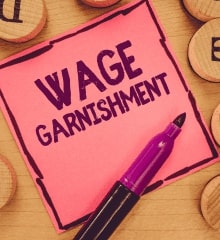How To File for Bankruptcy in Illinois: 7 Important Steps

Filing bankruptcy in Illinois can be an overwhelming process if you don’t know where to start. However, if you are facing financial hardship and cannot seem to get back on track, it may be the best solution for you.
If you reside in Illinois and want to file, it is crucial to learn the steps involved and the requirements you must meet. From understanding the different types of bankruptcy to finding the right attorney, we will provide you with the information you need to make an informed decision and successfully navigate the steps of the process.
When Do You Need to File for Bankruptcy?
If you are struggling with overwhelming debt and cannot seem to get back on track, it may be time to consider filing. Choosing to file for bankruptcy will allow you to eliminate your crushing debts and start over with a clean financial slate.
Some other signs that may indicate that you need to file for bankruptcy include:
- Your debt-to-income ratio is too high.
- You are facing foreclosure, repossession, or wage garnishment.
- You have no savings or emergency fund.
- You are using credit cards to pay for basic expenses.
7 Important Steps When Filing for Bankruptcy in Illinois

Although the process might seem daunting, it’s actually fairly straightforward if you have an experienced Illinois attorney on your side.
In the sections below, we’ve explained how to file bankruptcy in Illinois in seven simple steps.
1. Learn About Your Rights
The first of the steps in the process is to learn about your legal rights under U.S. bankruptcy laws. Reading this blog is an excellent way to start, but you should also discuss your circumstances with a knowledgeable legal professional.
2. Choose Between Chapter 13 and Chapter 7
Next, you will need to decide which type of bankruptcy you would like to file. The two primary types of personal bankruptcy are Chapter 7 and Chapter 13.
With Chapter 7, you can eliminate most of your unsecured debts, such as credit card debts and medical bills, but a trustee will be appointed to sell non-exempt assets and distribute the proceeds to creditors. On the other hand, Chapter 13 does not require you to sell any assets, but instead of eliminating your debts altogether, it will reduce and restructure them into a three-to-five-year repayment plan.
3. Collect Your Documents
While you prepare to take the necessary steps to file, you will need to collect documents to fill out your petition and provide the court the information it needs about your financial situation.
At a minimum, you will need to gather your tax returns for the last two years, pay stubs for at least the last 60 days, and current bank statements. You’ll also need to collect the names and addresses of all your creditors, along with the amount you owe each one, and prepare a list of your valuable assets.
4. Find an Experienced Bankruptcy Attorney
If you haven’t already done so, it’s vital to find a knowledgeable lawyer to help you file. An attorney can guide you through the steps of the process and help you avoid costly mistakes and filing errors.
5. Take a Credit Counseling Course
In Illinois, you are required to complete a credit counseling course before you file your petition. The course is designed to equip you with information on budgeting, managing money, and alternatives to bankruptcy. A list of approved credit counseling courses is available here.
6. Complete a Debtor Education Course
In addition to the credit counseling course, individuals who file for bankruptcy in Illinois are also required to complete a debtor education course. The purpose of the course is to educate you on financial management and responsible use of credit to help you avoid future financial difficulties.
7. Attend the 341 Meeting
In Illinois, you will be required to attend a 341 meeting, also known as the "meeting of creditors," about a month after you file. The meeting is conducted by the trustee assigned to your case, and any creditors who would like to attend can join. However, in most cases, creditors do not appear at the 341 meeting.
What Are the Main Benefits?

Filing for bankruptcy in Illinois can provide significant relief for individuals who are struggling with overwhelming debt.
By completing the steps and eliminating or reducing your debt, you can gain a better financial footing and start rebuilding your credit score.
Additionally, the court will issue an automatic stay that prevents creditors from taking any collection actions against you, including wage garnishment, foreclosure, or repossession. The automatic stay remains in effect through all of the steps of the process.
To learn more about the benefits, sign up today for a free consultation with a qualified DebtStoppers lawyer near you.





